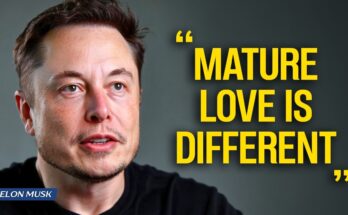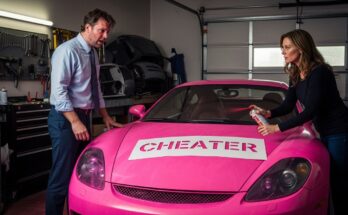Greg wasn’t the kind of man who made impulsive decisions. At 40, he’d spent most of his life working construction, saving every dollar for his wife Diana and their two kids, Jamie and Alex. His hands were calloused, his back ached, and his dreams were modest: a reliable truck, braces for Jamie, and maybe a weekend off once in a while.
But that November evening, something shifted.
He was walking through the train station after cashing his paycheck—his entire salary tucked into his coat pocket—when he saw her. A woman standing near the exit, clutching a toddler. Her coat was thin, her eyes tired, and her voice trembled when she spoke.
“Please,” she said. “I just need money for a ticket. I have money at home—I just need to get there.”
Greg had heard it before. City scams. Desperation dressed in manipulation. But something about her felt different. She wasn’t begging. She was breaking.
He hesitated. Then stepped forward.
“Let’s get you something to eat first,” he said.
She nodded, relief flooding her face. They walked to a nearby café. She ordered soup and tea. Her son, no older than three, clung to her side, silent but alert.
Over dinner, she told him her name was Lilly. Her son was Matthew. She’d fled an abusive situation and was trying to get back to her parents. She’d lost her wallet. Her phone was dead. She had nothing but hope—and it was fading fast.
Greg listened. Then he did something he’d never done before.
He gave her everything.
His entire paycheck. Enough for the train ticket, food, and a hotel room for the night. She cried. He hugged her. Then he walked home, unsure how he’d explain it to Diana.
She was stunned. Angry, at first. But when she saw the receipt, the empty wallet, and the look in Greg’s eyes, she softened.
“You did the right thing,” she whispered.
The next morning, a white limousine pulled into their driveway.
Greg stepped outside, confused. A driver in a suit approached him.
“Mr. Carter?” he asked. “Ms. Lilly asked me to bring you this.”
He handed Greg an envelope. Inside was a check—ten times Greg’s salary—and a note.
“You saved me when no one else would. My family owns a business. We’ve been searching for ways to give back. You gave without expecting anything. Now it’s our turn.”
Greg stared at the car, the check, the note. Then he looked at his house—small, worn, but full of love.
He didn’t ask for this. He didn’t plan it. He just saw someone in need and chose kindness.
And kindness, it turns out, has a way of finding its way back.

